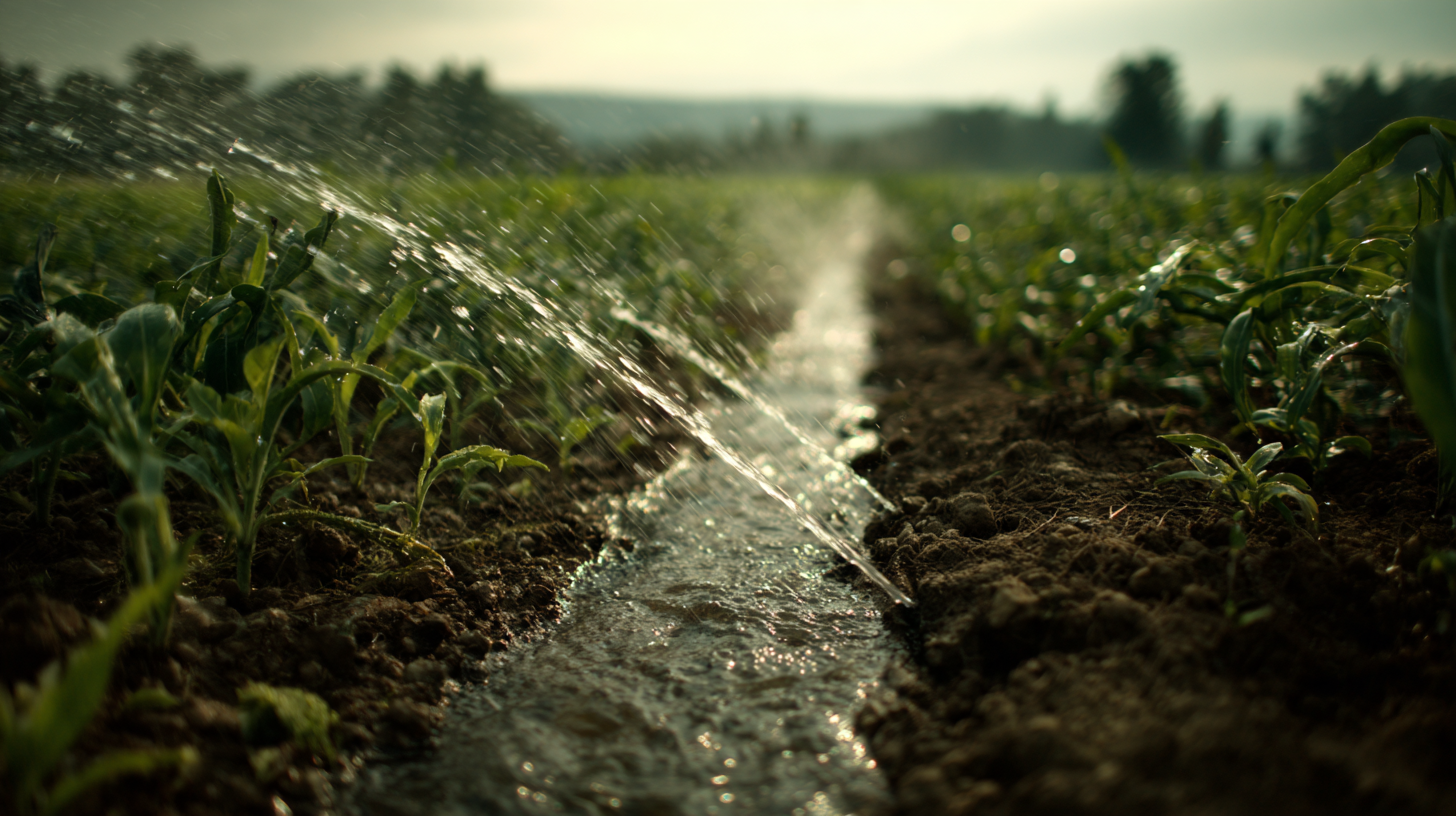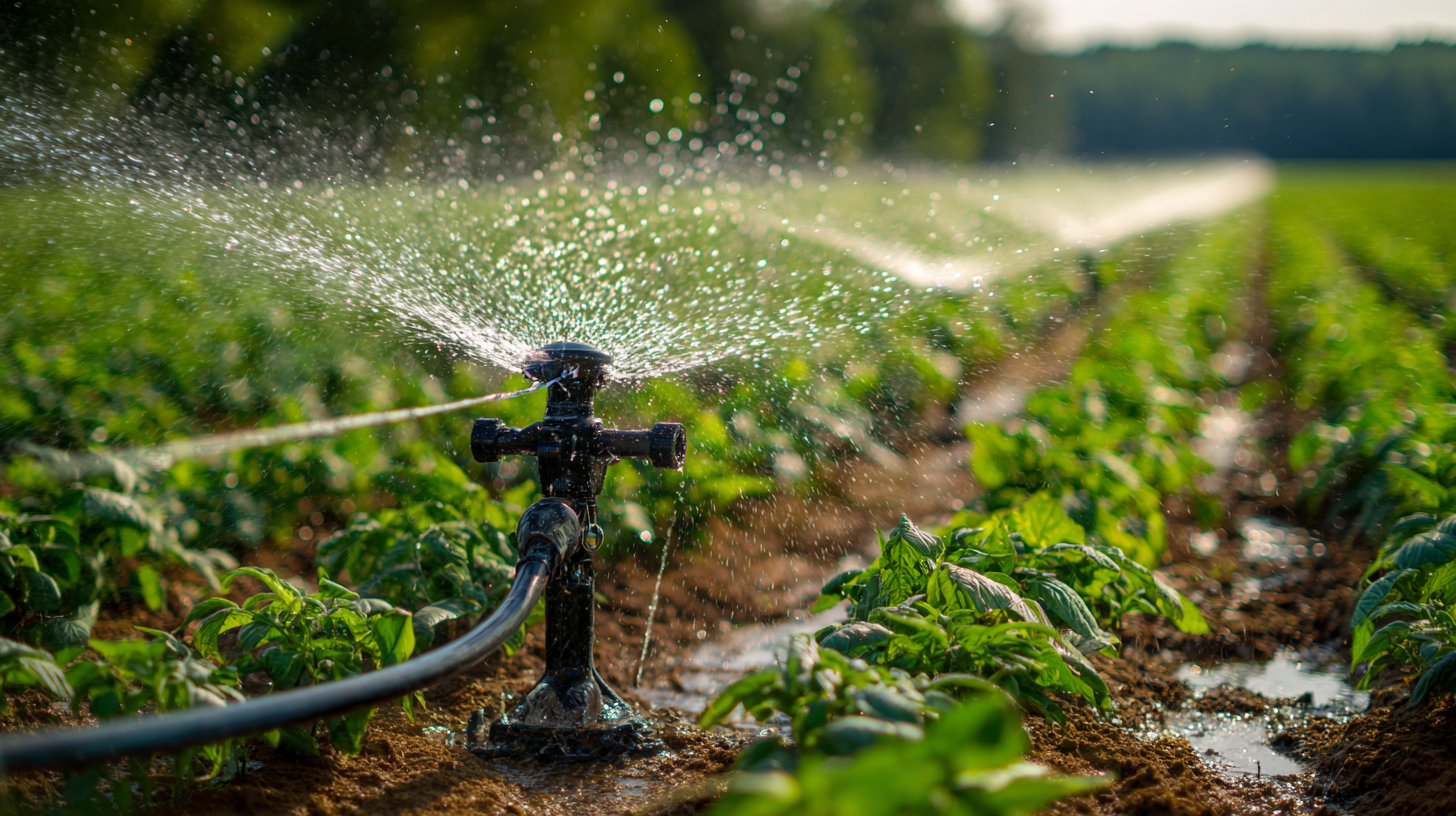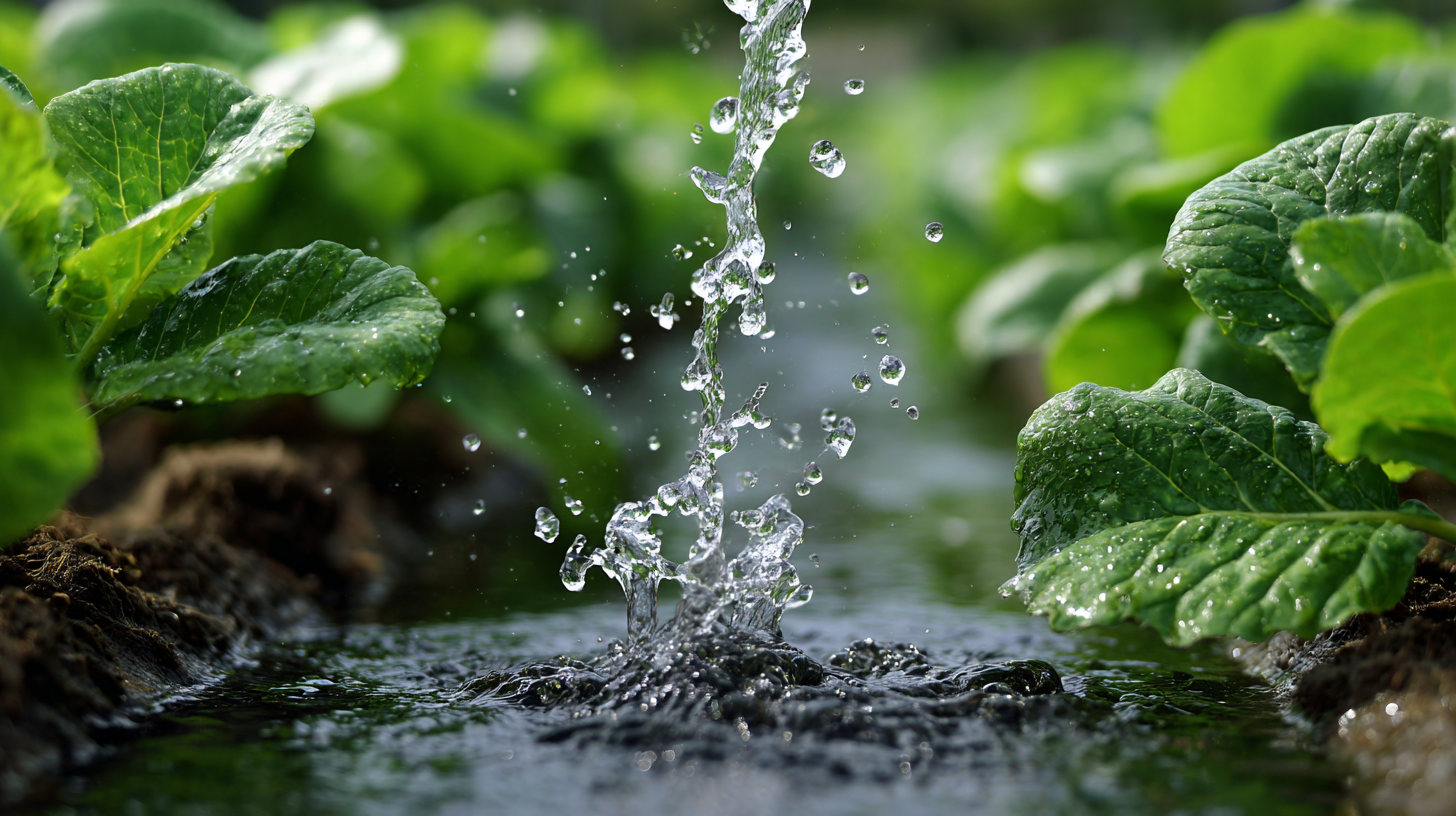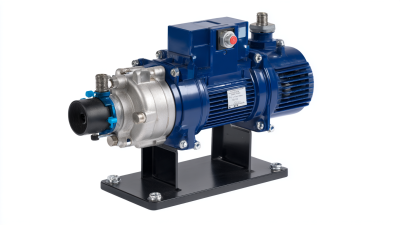Blog
- Home
- Blog
The Science Behind Pump Water and Its Impact on Sustainable Agriculture
In today's rapidly changing climate, the efficient management of water resources is crucial for sustainable agriculture. One key aspect of this management is the use of pump water, which enables farmers to optimize irrigation practices and enhance crop yields. According to the Food and Agriculture Organization (FAO), approximately 70% of the world's fresh water is used for agricultural purposes, highlighting the importance of water management strategies in the sector. With the global population expected to reach 9.7 billion by 2050, the demand for food production will significantly increase, necessitating advancements in irrigation technologies. A recent report by the International Water Management Institute (IWMI) suggests that improving irrigation efficiency through effective pump water systems can potentially lead to a 40% increase in agricultural productivity.

As we delve into the science behind pump water and its implications for sustainable practices, we will explore innovative techniques that promise to revolutionize the agricultural landscape while conserving vital water resources.
Understanding the Role of Pump Water in Modern Agriculture Practices
The role of pump water in modern agricultural practices is essential for enhancing crop yields and optimizing resource use. According to the Food and Agriculture Organization (FAO), approximately 70% of global freshwater is utilized for agriculture, and efficient water management is critical as global food demand is projected to rise by 60% by 2050. Pump water systems enable farmers to access groundwater and surface water sources, ensuring a consistent supply throughout different growth stages of crops.

Moreover, modern irrigation techniques, such as drip and sprinkler systems powered by pump water, can significantly reduce water wastage. The USDA reports that precision irrigation could lead to water savings of up to 20-30%, translating to substantial economic benefits for farmers. Additionally, effective water management supports soil health by preventing salinity buildup, which is vital for maintaining the long-term sustainability of agricultural land. By understanding and implementing pump water systems, farmers can improve their resilience in the face of climate variability, ensuring sustainable agriculture practices for future generations.
Key Technologies Enhancing Pump Water Efficiency for Sustainable Farming
In the quest for sustainable agriculture, efficient water management is paramount, and key technologies are emerging to enhance pump water efficiency. According to a report from the International Water Management Institute (IWMI), inefficient irrigation practices can lead to up to 50% of the water being wasted. This inefficiency not only strains water resources but also affects crop yields and quality. Modern pumping technologies, such as variable frequency drives (VFDs) and intelligent control systems, can significantly reduce water wastage and energy consumption by adjusting the pump output based on real-time demand, thus optimizing resource use.
Additionally, the integration of solar-powered pumps represents a revolutionary shift in sustainable farming. A study published in the Journal of Cleaner Production highlights that solar pumps can save up to 80% in operational costs when compared to traditional diesel-powered systems. This transition not only mitigates the carbon footprint of agricultural practices but also enables farmers in remote areas to access water without relying on fossil fuels. The adoption of these advanced technologies is crucial as the global population continues to rise, placing increasing pressure on agricultural production and water resources. Embracing these innovations can lead to a more sustainable and resilient agricultural future.
The Science Behind Pump Water and Its Impact on Sustainable Agriculture
| Technology | Efficiency Improvement (%) | Water Savings (liters per hectare) | Carbon Footprint Reduction (kg CO2/ha) | Adoption Rate (%) |
|---|---|---|---|---|
| Solar-Powered Pumps | 30 | 6000 | 200 | 25 |
| Variable Frequency Drives | 20 | 4000 | 150 | 35 |
| Drip Irrigation Systems | 40 | 8500 | 300 | 60 |
| Rainwater Harvesting Systems | 25 | 5000 | 100 | 40 |
| Automated Irrigation Systems | 35 | 7000 | 250 | 55 |
Evaluating the Environmental Impact of Pump Water Usage in Crop Production
The environmental impact of pump water usage in crop production is a critical factor in sustainable agriculture. Irrigation systems that rely on pump water can significantly affect local ecosystems, particularly in regions where water scarcity is an issue. Over-extraction of groundwater, often facilitated by diesel or electric pumps, can lead to lowered water tables and diminished water quality. This depletion can disrupt not only crop yields but also the livelihoods of communities that depend on these water sources for various agricultural activities.
Furthermore, the energy consumption associated with pumping water raises concerns about greenhouse gas emissions. As farmers increasingly rely on mechanized irrigation methods, the carbon footprint of crop production can escalate, countering the principles of sustainability. However, innovations such as solar-powered pumps and improved irrigation efficiency can mitigate these effects, promoting responsible water usage while minimizing harm to the environment. Transitioning to these sustainable practices is essential for ensuring that agricultural activities do not compromise the ecological balance, thereby preserving both crop productivity and the health of natural habitats.
The Environmental Impact of Pump Water Usage in Crop Production
Strategies for Integrating Pump Water Management into Sustainable Agricultural Systems
Effective water management is pivotal in fostering sustainable agricultural systems, and the integration of pump water management is a crucial strategy. According to a report by the Food and Agriculture Organization (FAO), agriculture accounts for about 70% of global freshwater withdrawals. Efficiently using pump water can help optimize this resource, mitigating the stress on water supplies and supporting crop productivity. By utilizing modern pump technologies, such as solar-powered pumps, farmers can not only enhance irrigation efficiency but also reduce energy costs and dependency on fossil fuels.
Furthermore, strategic planning in pump water management can be supported by data from the Global Water Partnership, which indicates that improved irrigation practices can increase water productivity substantially—up to 30% in some regions. Techniques such as scheduling irrigation based on real-time data and implementing drip systems can drastically reduce water usage while sustaining crop yields. This integration ensures that water resources are not only preserved for future generations but also provides a resilient approach to climate change impacts on agriculture, promoting overall sustainability in the agricultural sector.
Future Innovations in Pump Water Systems and Their Potential Benefits for Farmers
Future innovations in pump water systems are poised to revolutionize sustainable agriculture by enhancing irrigation efficiency and accessibility. The integration of smart technology, such as IoT devices and real-time monitoring systems, allows farmers to precisely manage water usage based on crop needs and environmental conditions. This data-driven approach not only ensures optimal water application but also minimizes waste, contributing to more sustainable agricultural practices.

Moreover, advancements in renewable energy sources, such as solar-powered pumps, offer a sustainable solution to water pumping challenges in remote areas. These systems can operate independently of traditional electrical grids, reducing dependency on fossil fuels and lowering operational costs for farmers. By enabling water access in previously unreachable regions, these innovations empower farmers to cultivate land that was once considered barren, thus increasing food production potential while promoting environmental stewardship.
Related Posts
-

5 Essential Tips for Sourcing the Best Pump Water Solutions Globally
-

How to Optimize Pump Water Efficiency for Sustainable Resource Management
-

7 Best Dosing Pumps for Precision Chemical Dispensing
-

Essential Insights: A Comprehensive Guide to Selecting Solenoid Metering Pumps for Your Applications
-

Ultimate Guide to Selecting the Right Industrial Dosing Pump for Your Needs
-

5 Best Tips for Choosing the Right Hydraulic Pump for Your Needs
